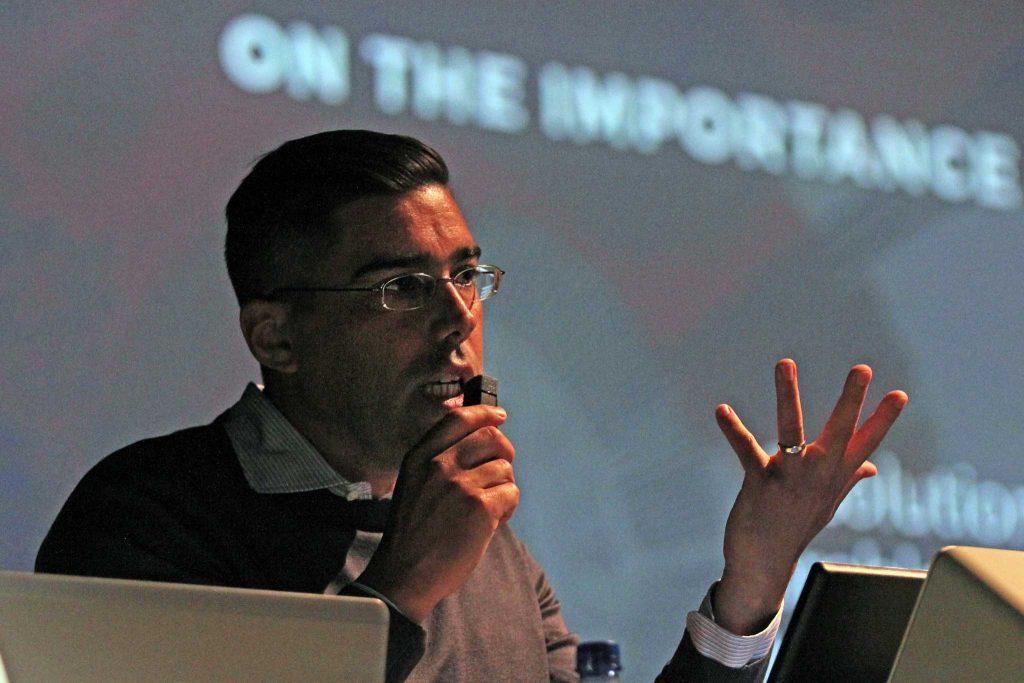Every four years, the political science department offers a course examining that year’s approaching presidential election.
This year’s course, the 2016 presidential election public lecture series, is designed to inform students about the election in a non-partisan manner and show the community the type of engagement that is encouraged at SF State.
Every Tuesday three to five faculty members present topics surrounding an event leading up to the upcoming election. By the end of the class, students will have been exposed to lectures from about 50 faculty members.
“This class helps students to better process all the information given, making it less confusing,” said Professor Joel Kassiola, who created the course in 2004 to help inform the community. “There’s too much information to make sense of.”
Kassiola said he relates the class to the Chinese philosopher Confucius’ teachings of the importance of self-cultivation and making sense of the world. He said the course also provides information on the different problems that contemporary population faces.
Political Science Assistant Professor Marcella Garcia-Castanon, who is joining Kassiola to teach the course for the first time, said the diversity of SF State’s faculty helps elevate the political conversation. Garcia-Castanon said the cultural diversity of the Bay Area was represented by faculty members themselves and by what they bring to the discussion.
“My push has been toward incorporating it (the course) as a pathway for students to become community-oriented and to empower them,” Garcia-Castanon said. “Sometimes students are sick and tired of the elections and that’s because they have had only the superficial media coverage or the superficial exposure.”
This learning process about the election does not end on Nov. 8. Students will reflect on what led a candidate to reach the White House.
“We do an election night and then we do a post-election analysis about who won and why,” Garcia-Castanon said.
The non-traditional class offers students the freedom of watching the discussion or listening to them as a podcast. There is an online section and an in-person section, each with the same requirements to pass. Kassiola hopes that by 2020 anyone in the country will be able to follow the panels in real time.
“I’m interested in following the process and being able to analyze the results,” said Leyre Carrasco, a political science exchange student from Spain .
There are about five rows reserved for Osher Lifelong Learning Institute members at the Mckenna Theater to attend the sessions and students are encouraged to bring more participants to these panels.
“The best purpose of a university is to enlighten and inform the public,” Kassiola said.
The class, PLSI 216, has open registration until Sept. 14.





